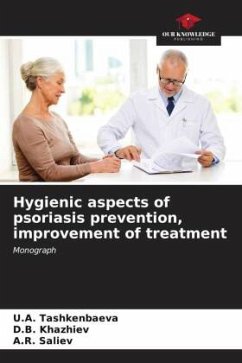
Sleep Hygiene Practices
A Cross Cultural Survey of Sleeping and Dreaming in College Students
Versandkostenfrei!
Versandfertig in 6-10 Tagen
27,99 €
inkl. MwSt.

PAYBACK Punkte
14 °P sammeln!
There is consensus that a sizeable percentage of people in most developed countries do not obtain adequate amounts or quality of sleep. These disruptions in sleep, when chronic and severe, can lead to psychological, behavioral and health consequences. The focus on behavioral and contextual factors that impact sleep has been termed "sleep hygiene". An on-line anonymous survey collected sociodemographic information, as well as self-reports on sleep, sleep hygiene practices and dreaming across two cultural groups (English & Spanish speaking responders). In general, respondents do not actively and...
There is consensus that a sizeable percentage of people in most developed countries do not obtain adequate amounts or quality of sleep. These disruptions in sleep, when chronic and severe, can lead to psychological, behavioral and health consequences. The focus on behavioral and contextual factors that impact sleep has been termed "sleep hygiene". An on-line anonymous survey collected sociodemographic information, as well as self-reports on sleep, sleep hygiene practices and dreaming across two cultural groups (English & Spanish speaking responders). In general, respondents do not actively and consistently practice any of the sleep hygiene recommendations. The results also revealed surprisingly high levels of night awakenings, use of medications and disruption of sleep by environmental factors. Results on the frequency of dreams were similar to previous research but nightmares were more frequent within this population. Percentage of people who reported that dreams or nightmares affected their behavior and/or emotional status the following day were also similar to previous findings.












